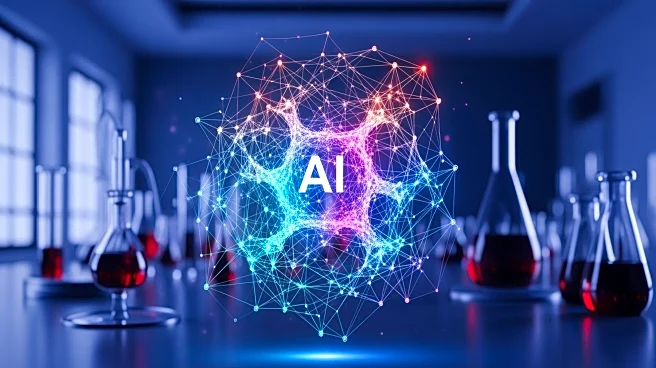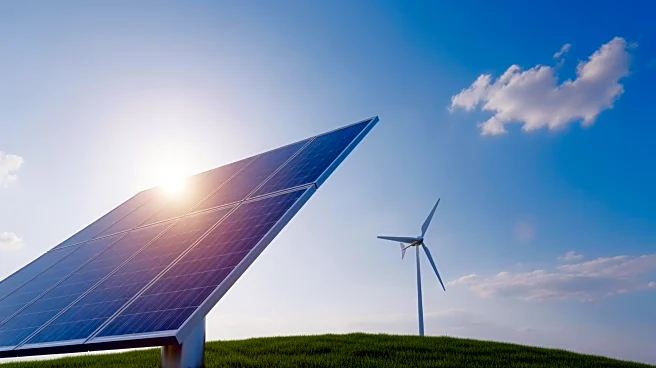What's Happening?
A study co-authored by Addepally Uma, PhD, highlights the role of artificial intelligence in optimizing vaccine production processes. AI-driven systems can predict optimal conditions for culture, nutrient
feed, and purification, significantly reducing manufacturing costs. The study emphasizes the potential of AI in predictive maintenance, which identifies early signs of equipment wear, thus minimizing downtime and enhancing production efficiency. This technological integration aims to streamline vaccine manufacturing, making lifesaving vaccines more accessible.
Why It's Important?
The application of AI in vaccine production is crucial for reducing costs and increasing efficiency, which can lead to broader access to vaccines globally. By optimizing production processes, AI can help overcome challenges associated with complex biological systems, ensuring consistent quality and reducing waste. This advancement is particularly significant in the context of global health, where cost-effective vaccine production can improve immunization rates and combat infectious diseases more effectively.
What's Next?
The continued integration of AI in bioprocessing is expected to revolutionize the pharmaceutical industry, with potential expansions into other areas of drug manufacturing. As AI technology evolves, its application could extend beyond vaccines, influencing broader healthcare practices and policies. Stakeholders in the pharmaceutical industry may need to adapt to these changes, investing in AI-driven solutions to remain competitive.
Beyond the Headlines
AI's role in vaccine production underscores the growing importance of technology in healthcare innovation. This shift may prompt ethical considerations regarding data privacy and the balance between automation and human oversight in critical health processes.









